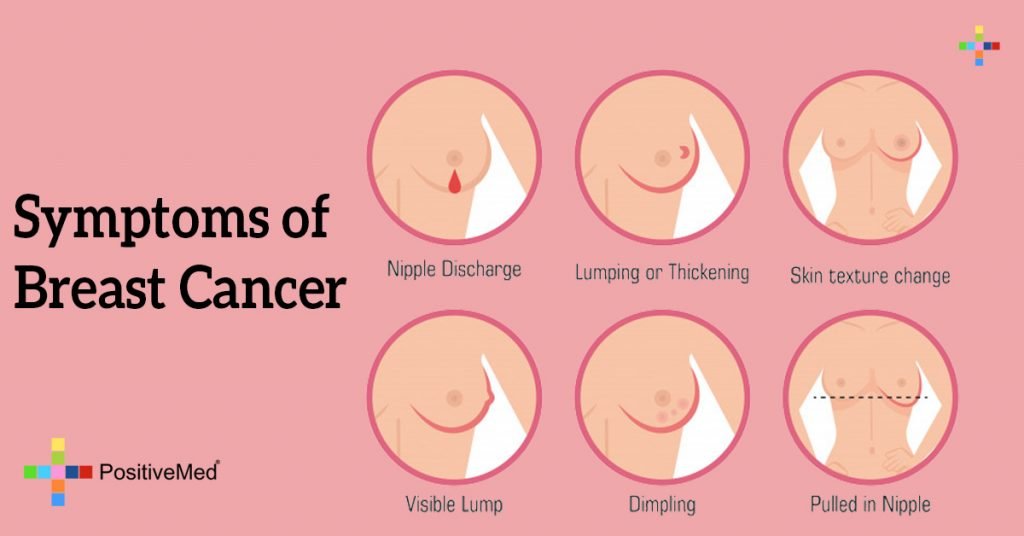
Symptoms of Breast Cancer
Edited By: Stephanie Dawson
• Lumps
The first noticeable symptom of breast cancer is typically a lump that feels different from the rest of the breast tissue. Usually the lump persists after the menstrual cycle. Lumps associated with breast cancer are usually painless. They are visible on a mammogram long before they can be seen or felt. More than 80% of breast cancers are diagnosed due to self-exams.
• Swelling
Swelling in breasts is a noticeable symptom of breast cancer. If you feel swelling for a long duration, consult your doctor. Swelling in the armpit can also be a sign of breast cancer.
• Pain
Pain and tenderness in the breast is a viable symptom. Some people confuse it with heart or chest pain.
• Nipple Discharge
Blood or unusual fluid-like discharge from the nipple can be a sign of breast cancer. It may be any color or colorless. This is usually benign but can be a sign of cancer.
• Skin Changes
Any kind of skin change on your breasts can be a sign of advanced breast cancer. The change can be in size, color, contour, texture, or temperature of the breast. Appearance of skin as a reddish pitted surface, orange-peel like, can be a clear sign of breast cancer. Redness is also a bad sign.
• Change in Nipple
Nipple retraction, dimpling, itching, a burning sensation or ulceration are symptoms of breast cancer. A scaly rash on the nipple is symptomatic of Paget’s disease, which could be associated with underlying breast cancer.
• Indentation of Breast
Flattening or indentation of the breast can be a sign of breast cancer. It can be a tumor which can’t be seen or felt.
• Marble-Like Area
A marble-like feeling under your breast skin can be dangerous. If you feel that one area is distinctly different from any other area on either breast, you should see your doctor.
You can do a breast self-exam. If a woman wishes to do BSE (Breast Self-Exam) the technique should be reviewed with her health care professional. The goal is to feel comfortable with the way the woman’s breasts feel and look, therefore, detect changes.





